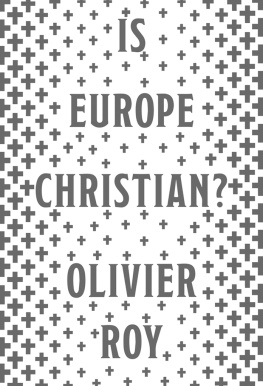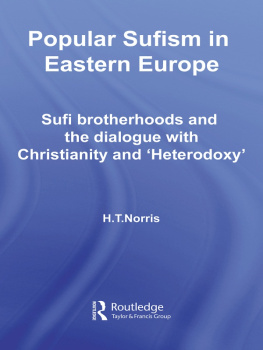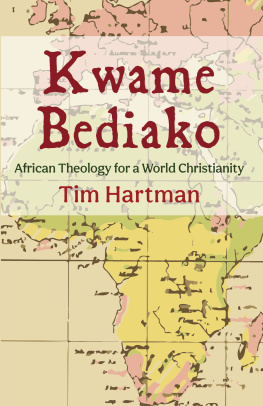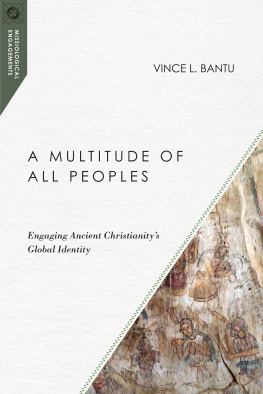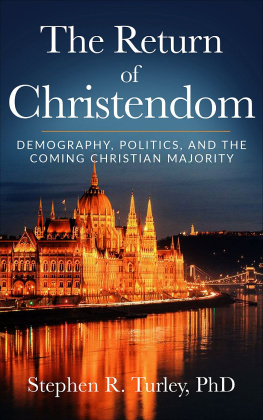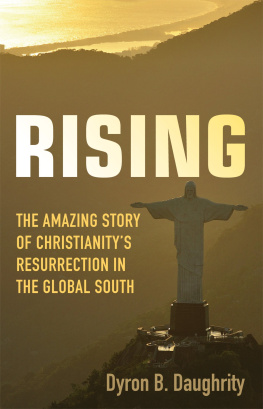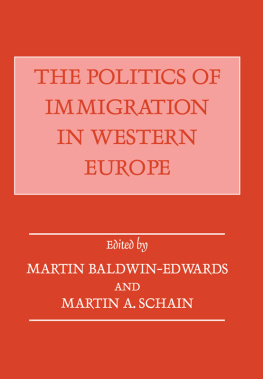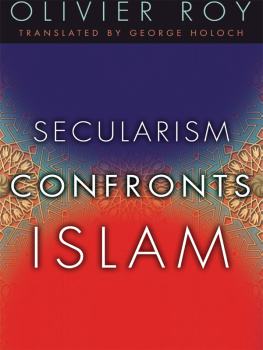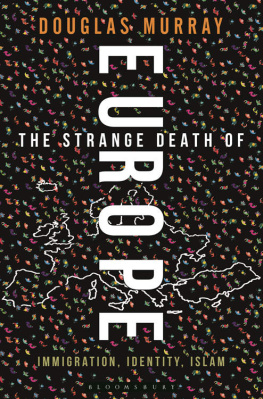IS EUROPE CHRISTIAN?
Is Europe Christian?
OLIVIER ROY
Translated by
CYNTHIA SCHOCH


Oxford University Press is a department of the University of Oxford. It furthers the Universitys objective of excellence in research, scholarship, and education by publishing worldwide. Oxford is a registered trade mark of Oxford University Press in the UK and certain other countries.
Published in the United States of America by Oxford University Press 198 Madison Avenue, New York, NY 10016, United States of America.
Olivier Roy, 2019
All rights reserved. No part of this publication may be reproduced, stored in a retrieval system, or transmitted, in any form or by any means, without the prior permission in writing of Oxford University Press, or as expressly permitted by law, by license, or under terms agreed with the appropriate reproduction rights organization. Inquiries concerning reproduction outside the scope of the above should be sent to the Rights Department, Oxford University Press, at the address above.
You must not circulate this work in any other form and you must impose this same condition on any acquirer.
Library of Congress Cataloging-in-Publication Data
ISBN 9780190099930 (print)
ISBN 9780197513842 (updf)
ISBN 9780197513910 (epub)
Names: Olivier Roy
Title: Is Europe Christian
Contents
Three of the founding fathers of what is now the European UnionRobert Schuman of France, Alcide De Gasperi of Italy, and Konrad Adenauer of Germanywere devout Catholics. The first two are even shrouded in sanctity. To these men, it was obvious that Christianity was at the core of European identity, the soul at the centre of the huge bureaucratic body being constructed by politicians. And yet Christianity was never enshrined in the Treaty of Rome, which created the European Economic Community (EEC) in 1957. Perhaps it was considered better for Europe to be Christian not in letter but in spirit. Or maybe this pillar of European identity was so obvious that there was no need to carve it in stone.
The question arose fifty years later, in 2004, as the preamble was being written for the draft treaty for establishing a constitution for Europe. Backed by Pope Benedict XVI, somemostly Catholicsurged that the document make mention of Europes Christian roots. Here it is worth mentioning that even to talk about roots indicates a reluctance to state simply that Europe is Christian. Moreover, if a reminder of such roots is deemed necessary in the text of a constitution, it is precisely because they cannot be taken for granted.
What exactly had happened in those fifty years? Since the Treaty of Rome, there have been two significant developments for Christianity in Europe. First, secularization has given way to the large-scale dechristianization of European societies in both religious and cultural terms, especially from the protests of 1968 onwards. Second, Islam has arrived in Europe, through immigration and, with Turkeys application for membership of the EU, the proposed expansion of the continents borders. While populist movements since the 1990s have mainly mobilized against Islam, the Catholic Church has focused for much longer on the threat to Christian values represented by secularization, seen as a new form of paganism. In July 1968, Pope Paul VI issued the Human vit papal encyclical condemning the erosion of traditional sexual morality and the tide of sexual liberation sweeping the West. John Paul II later doubled down on the Churchs rejection of Europes cultural secularization. He saw a return to faith as the solution, as he expressed in 1980 during a visit to France when he exclaimed, France, have you been faithful to the promises of your baptism? According to John Paul II, the baptism of the first king of France, Clovis, enshrined Frances enduring loyalty to the Church; it was not a matter of mere cultural tradition. Later, when Benedict XVI campaigned for a reference to Europes Christian roots, it was not Islam he had in mind. Rather, his concern was secular culture, which his predecessor had called a culture of death, and which he himself believed had led Christian Europe to convert to a new form of paganism in the space of a few decades.
In response to this encroachment, an entire Catholic revival movement was born, its primary aim being to fight the values of secularism. In France, for instance, La Manif Pour Tous (Demonstration for All) blamed same-sex marriage, and thus the collapse of the Christian West, on the new secular culture and its endorsement by complacent elites. Islam was not the main scapegoat; in fact, the movement made a huge effort to encourage Jews and Muslims to participate in its early marches. Naturally, Sens Commun, a political offshoot of La Manif Pour Tous, instantly made clear its hostility to immigration as well, yet the fact remains that the issues of abortion and same-sex marriage were more central to conservative Catholic mobilization. Meanwhile, Evangelical Protestants arrived on the scene of religious revivalism in the 1980s. They also vigorously criticized the dominance of cultural paganism, but without harking back to the Christian roots of Europe, which they do not consider the centre of the world. Evangelical Protestantism is uninterested in the past and nostalgia: the entire world is mission territory; globalization, the future.
Alongside the call of the churches, another movement also suddenly, but belatedly, began to remember Europes Christian roots, though without preaching a return to faithand for good reason, as its adherents can hardly be said to be religious. Populist movements and the conservative right, sometimes joined by left-leaning elements, champion Europes Christian identity in order to counter Islam. Such groups view this identity as a matter of culture rather than faith; few populists attend mass, and from the United Kingdom to France and Italy, the large majority of todays right are religiously indifferent. The Front National party platform for the 2017 presidential election in France did not even mention Christianity, and in fact planned to strengthen lacit (secularity). Only one reference to churches can be found in its previous manifestos, with a promise in 2014 to ensure their preservation as historical monumentsa fine way of acknowledging their low attendance. When German interior minister Horst Seehofer declared, No, Islam is not part of Germany in March 2018, he argued, Christianity has shaped Germany, including Sunday as a day of rest, church holidays, and rituals such as Easter, Pentecost and Christmas.population sees Shrove Tuesday as anything more than an excuse to eat pancakes?). Most importantly, the European values contrasted with the imagined ideals of newcomers are not Christian valueslove thy neighbour has even been decried as self-flagellation by French public figures ranging from Jean-Marie Le Pen to philosopher Pascal Brucknerbut are instead the liberal values that came out of the Enlightenment and secularization, including freedom of conscience and criticism, sexual freedom, human rights and, more recently, gay rights. In other words, they are many of the very same values rejected or criticized by the Church (Pope Francis openly stated that he was not Charlie).
Of course, the followers of these two movements often overlap: La Manif Pour Tous activists readily vote for the Front National. Nevertheless, if we want to understand what is really going on, it is important to distinguish the diversity of perspectives.

